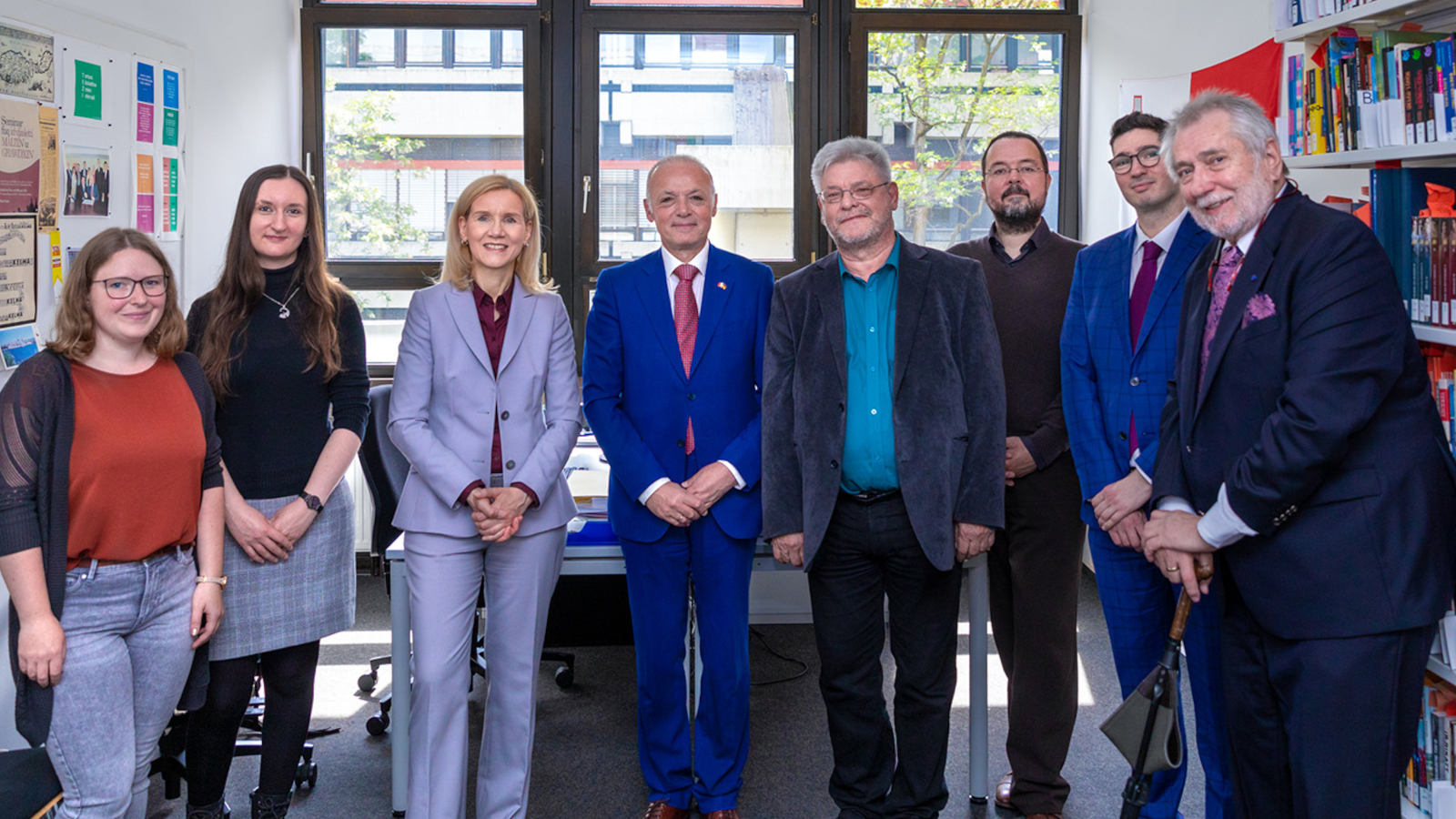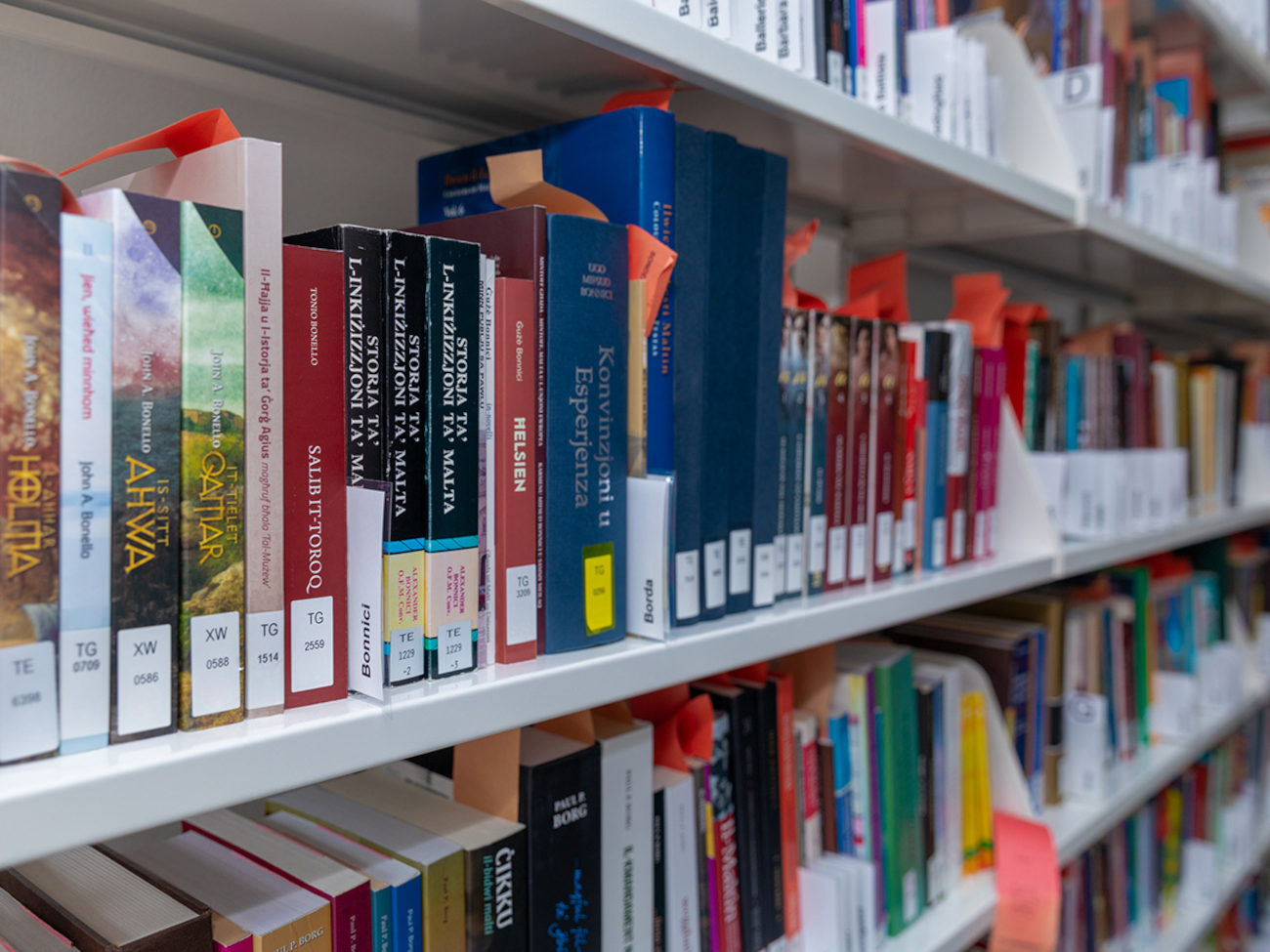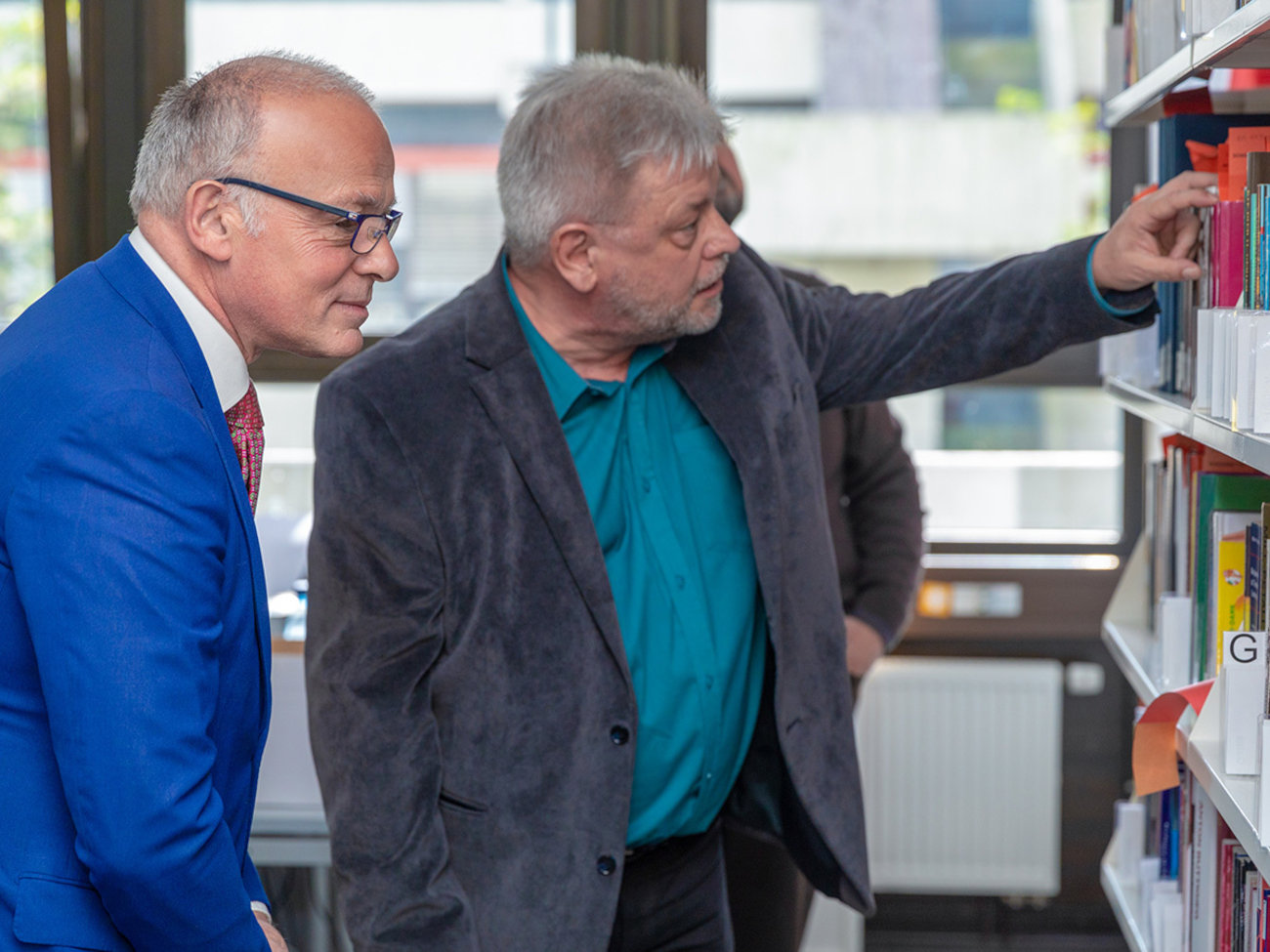
© Matej Meza / Universität Bremen
Have You Heard of… the Maltese Library?
The GW2 building houses the world’s largest collection of Maltese literature outside Malta.
Professor Thomas Stolz’s trip to Malta with his wife in 1996 turned into a vacation that changed linguistic research. What was meant to be an ordinary holiday became, in retrospect, the first steps toward establishing the Malta Center and Maltese Library – one-of-a-kind facilities in the world.
In the mid-1990s, linguist Thomas Stolz traveled with his wife to Malta for a summer vacation. However, there was a sudden change to their plans. “As soon as we arrived, my wife came down with the chicken pox. She had to go into quarantine at the hotel, so I had a lot of time to read,” says Stolz, professor of General and Comparative Linguistics at the University of Bremen’s Faculty of Linguistics and Literary Studies. While looking for something to read to relieve their boredom, he found that he could understand the local newspapers thanks to his knowledge of Italian. “As a linguist, I naturally found that interesting. To delve deeper, I first bought myself a dictionary and some children’s books,” he says. “I started reading in Maltese throughout the vacation. I had plenty of time on my hands.”
Maltese: A Little-Researched Language
Back in Bremen, Stolz was surprised to find that Maltese had hardly been researched. “There had been very little research done on this language. Until then, Maltese had only been dealt with marginally, as part of Arabic studies. Most research was conducted within Malta and rarely extended to the international research community,” recalls Stolz. In the following summers, he and his wife traveled to Malta several times. The professor took the opportunity to get acquainted with the linguistics faculty at the local university and established first contacts. “I set myself the goal of bringing Maltese to the attention of linguistics research. To do this, I brought together researchers from all over the world,” says Stolz.

© Matej Meza / Universität Bremen
Foundation of the Maltese Library as Part of the Malta Center
In 2007, Stolz founded the International Association of Maltese Linguistics in Bremen. This laid the groundwork for establishing the Malta Center in 2012 as a cooperation between the Universities of Malta and Bremen. An important part of this is the Maltese Library, which includes publications in Maltese released since 2000. The team in Bremen works with a major mail-order bookseller in Malta, which sends an annual list of all new publications. On this basis, about 30 to 60 new books are ordered each year. The books are first cataloged at the State and University Library before being sorted in the GW2 building’s library and recorded in the online catalog. “Currently, we have 1,126 books in our collection,” says Julia Nintemann, the research assistant responsible for the organization of the Malta Center.
Bremen as a Center of Maltese Language Research
The development of the Malta Center has provided impetus to the study of the Maltese language. About 100 to 150 people worldwide are now researching this topic; they can work on the collection on-site in Bremen and network with others. The center regularly offers language courses for private individuals and for professional purposes, while students can spend a semester in Malta through the Erasmus program. Research in Bremen is also making progress, as Maike Vorholt is investigating the Maltese preposition system as part of the Deutsche Forschungsgemeinschaft (German Research Foundation – DFG) project titled “Präpositionen und ihre Grammatik im Maltesischen” (Prepositions and Their Grammar in Maltese). The aim of the project is to determine the total number of Maltese prepositions and to describe them comprehensively in terms of their phonological, morphological, syntactic, and semantic properties.

© Matej Meza / Universität Bremen
Cooperation Extended until 2027
At the end of May, the Malta Center received a visit from Malta’s ambassador to Germany, Dr. Giovanni Xuereb, and Honorary Consul General Dr. Thomas Stöcker. Their visit coincided with the extension of the cooperation between the Universities of Malta and Bremen. “This visit was a great honor for us. We are delighted that our research is also of great importance for Malta,” says Stolz. “Thanks to the Malta Center, the study of the Maltese language is no longer a niche topic, but has a permanent place in linguistics.”